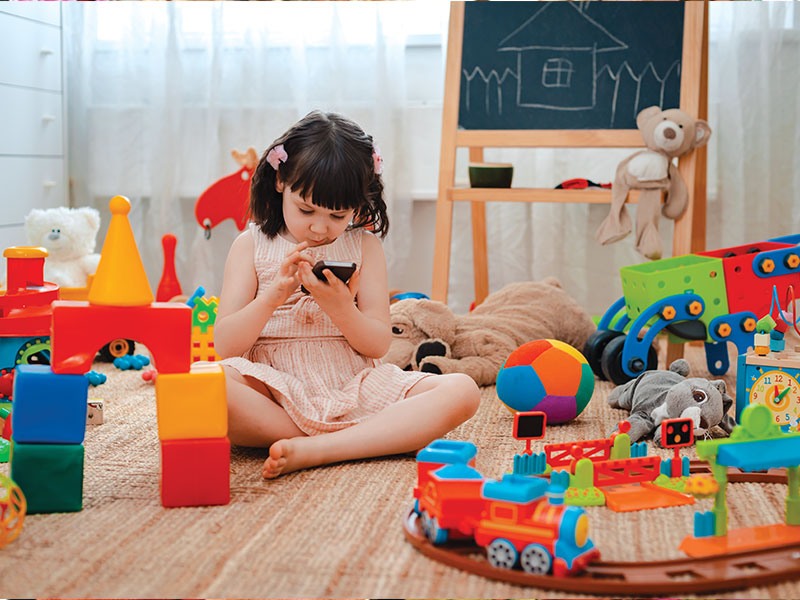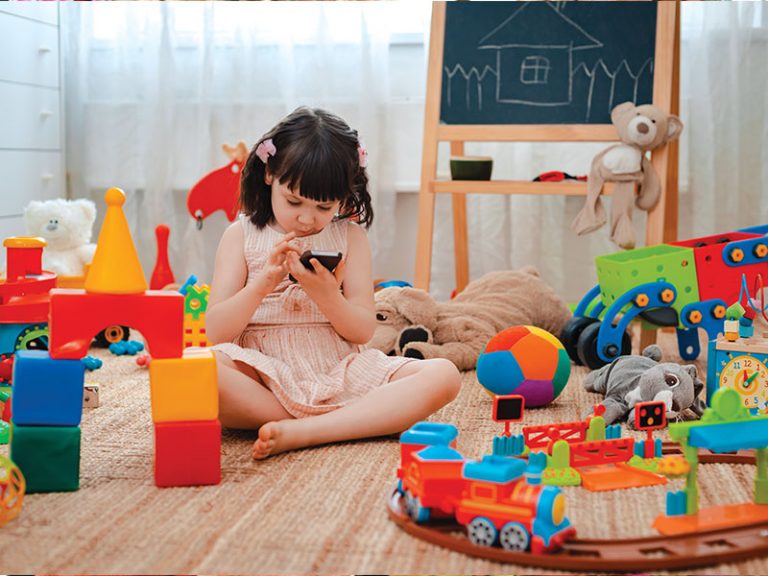Replace gadgets with toys
Parents need to take proactive steps to wean youngest children from digital media and devices by introducing them to stimulating toys that develop fine and motor skills while nurturing their critical thinking and problem-solving skills – Archana N.

It’s no longer startling or shocking to witness tiny tots effortlessly playing games and navigating apps on smart phones, iPads, and other digital devices. Over the past nine months since the global Covid-19 pandemic, which has caused 9.88 million infections and resulted in 143,000 fatalities countrywide, forced families indoors, usage of digital devices by youngest children has increased manifold. The highly-respected American Academy of Pediatrics recommends zero screen time for children below two years, and one hour per day for children aged two-five years.
Moreover child psychologists and health experts advise parents to take proactive steps to wean youngest children from digital media by introducing them to stimulating educational toys that develop their motor skills that nurture their critical thinking and problem-solving skills. “Play is learning for children. Therefore by encouraging children to play with physical toys, parents are aiding their children’s intellectual, social, emotional, and physical development.
Toys stimulate the right and left brain, and develop verbal and visual-spatial/visual-motor skill sets and creativity within children,” says Dr. Dherandra Kumar, consultant clinical child psychologist and director, AHEAD, and consultant at Apollo Hospitals, Noida.
 Dr. Dherandra Kumar recommends that parents introduce these toys to 2-5 year olds:
Dr. Dherandra Kumar recommends that parents introduce these toys to 2-5 year olds:
Toys which teach children role play
Kitchen sets, dolls, doctor sets, costumes, etc prompt children to imitate adult roles. Parents should join in role play, taking care to avoid gender stereotyping. Encourage male children to play with kitchen sets and girls with meccano sets. Role play enables children to connect with the real world and develop empathy, communication skills and emotional intelligence.
Toys to promote dexterity
Clay modeling and building blocks develop children’s dexterity, motor and hand, eye coordination skills.
Toys that develop gross motor skills
Balancing boards and river stones
Trampoline
Pull-along toys
Rocking toys on which children sit
Rings, cones, etc
Crawling tunnels
Outdoor sports such as cricket, football and badminton
Toys t0 develop fine motor skills
Peg boards
Beads and bead mazes
Snap-lock beads
Dress-up toys
Stacking toys
Sketch boards
Jigsaw puzzles
Music is simultaneously stimulating and calming for children. Toy musical instruments are ideal for young children to experiment with sounds.
Soft balls which young children can easily bounce, throw, spin or catch are not only fun, but develop children’s coordination skills.
Hard-back picture books will instill the reading habit in youngest children.
From gadgets to toys
 Dr. Maulik Shah, paediatrician, Vatsalya Superspecialty Child’s Clinic, Mumbai, shares tips for parents to unhook children from gadgets and hook them on to constructive play with toys.
Dr. Maulik Shah, paediatrician, Vatsalya Superspecialty Child’s Clinic, Mumbai, shares tips for parents to unhook children from gadgets and hook them on to constructive play with toys.
- Don’t forbid gadgets completely. Instead set time limits for gadget use, such as 10 minutes during a one-hour play window.
- Choose and select toys which the child enjoys — puzzles, building blocks, or role play toys.
- Scout for membership of a toy library where you can access multiple toys/games.
- Set aside a family playtime every week when children and adults come together to play board games such as snakes and ladder, chess or Monopoly.
- Set a gadget-free hour during which children play outdoors or with physical toys.
















Add comment